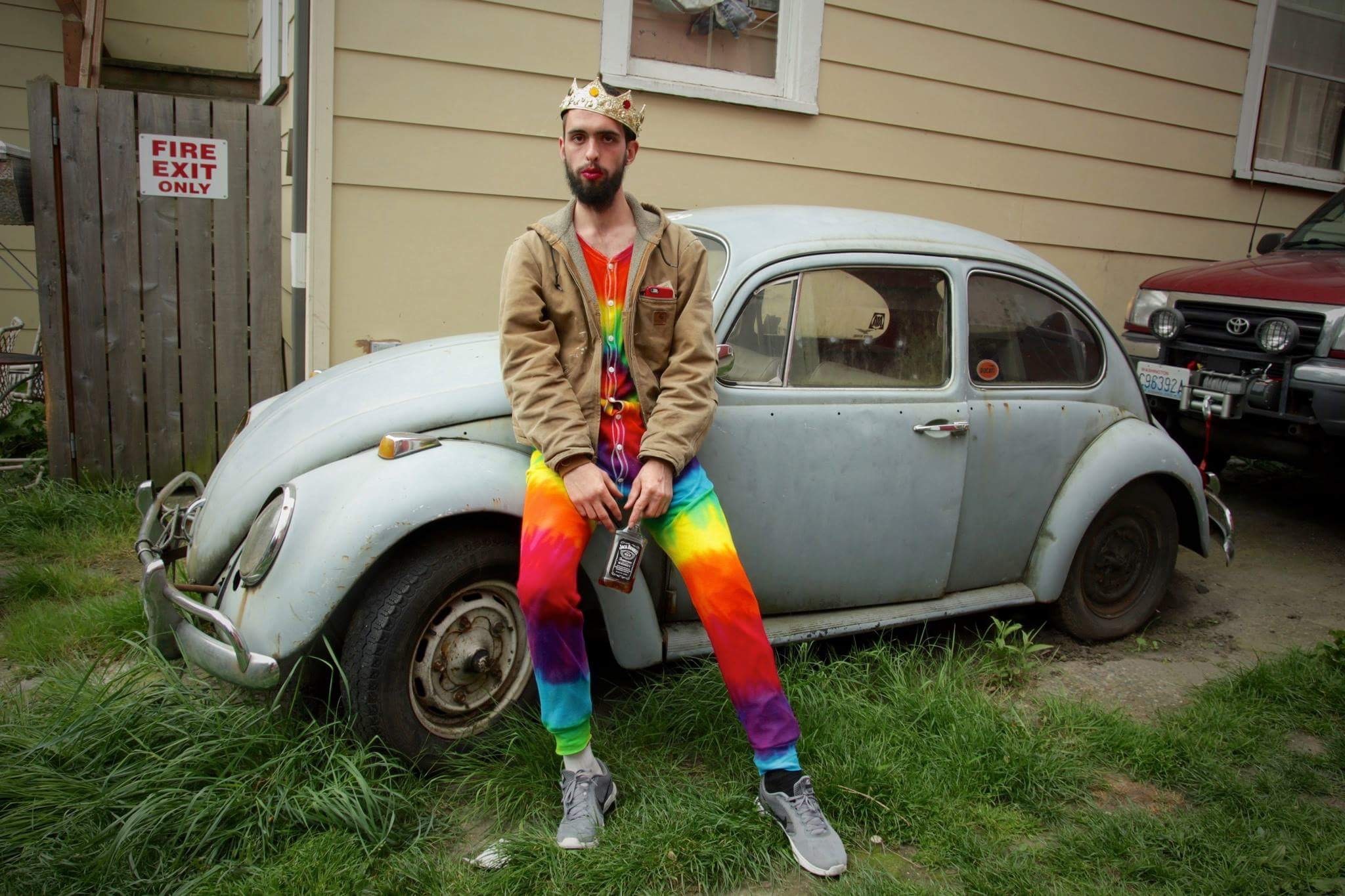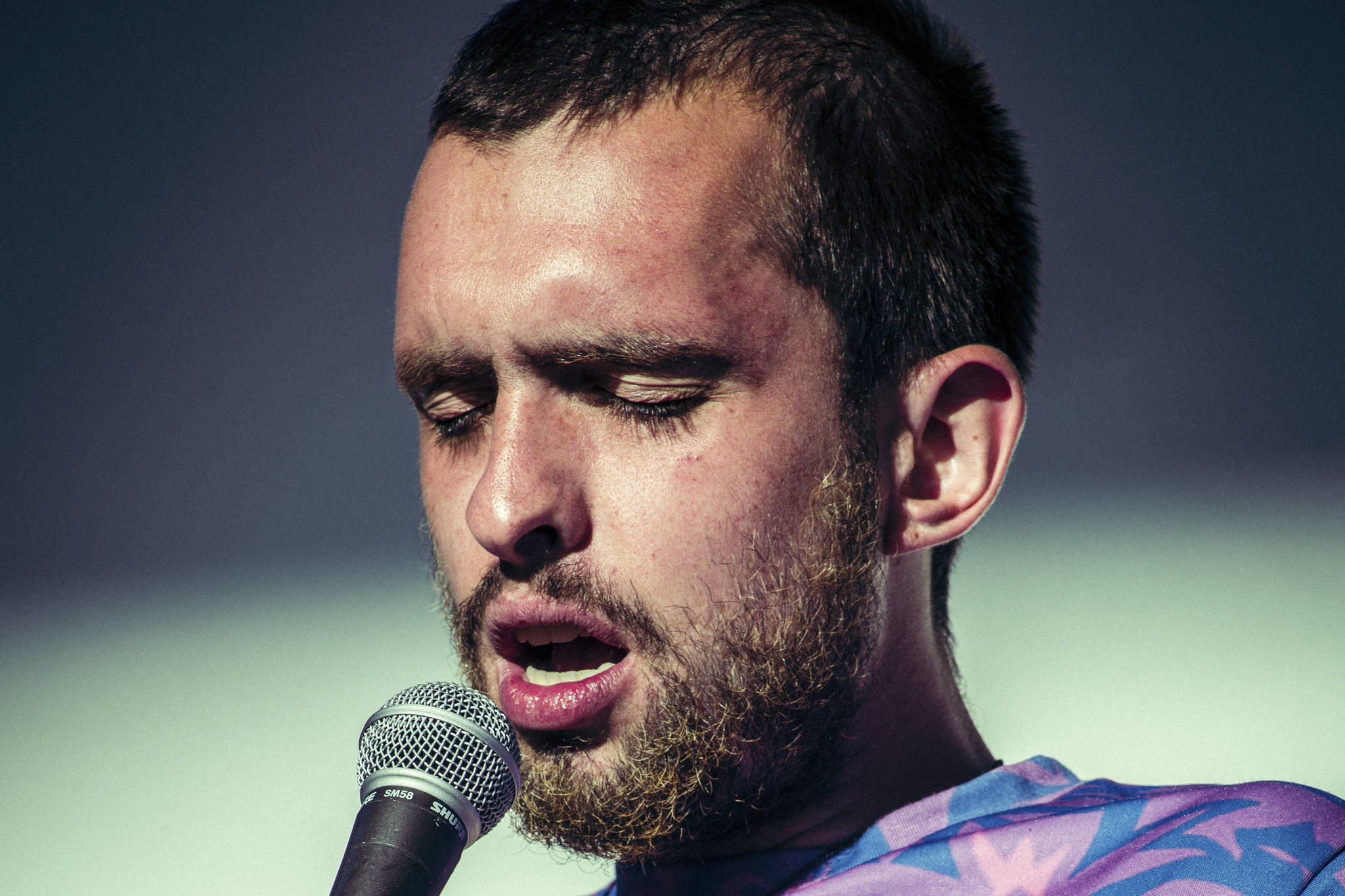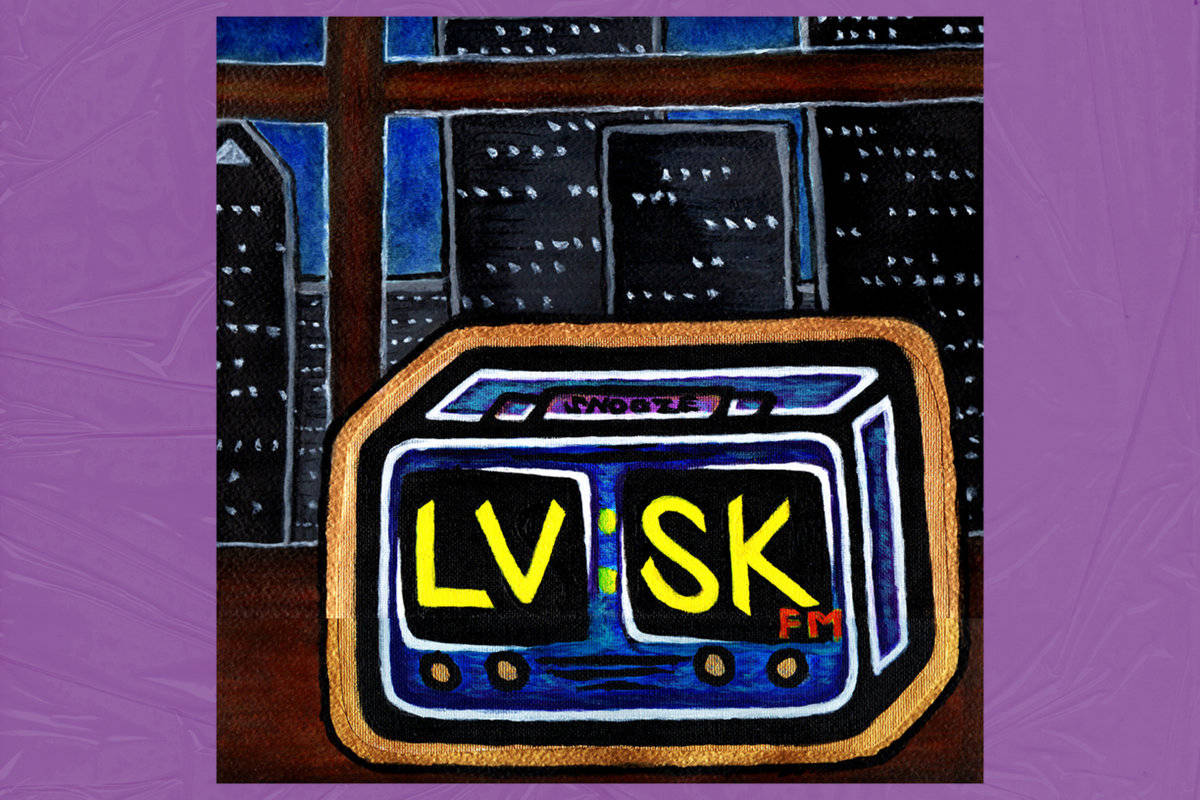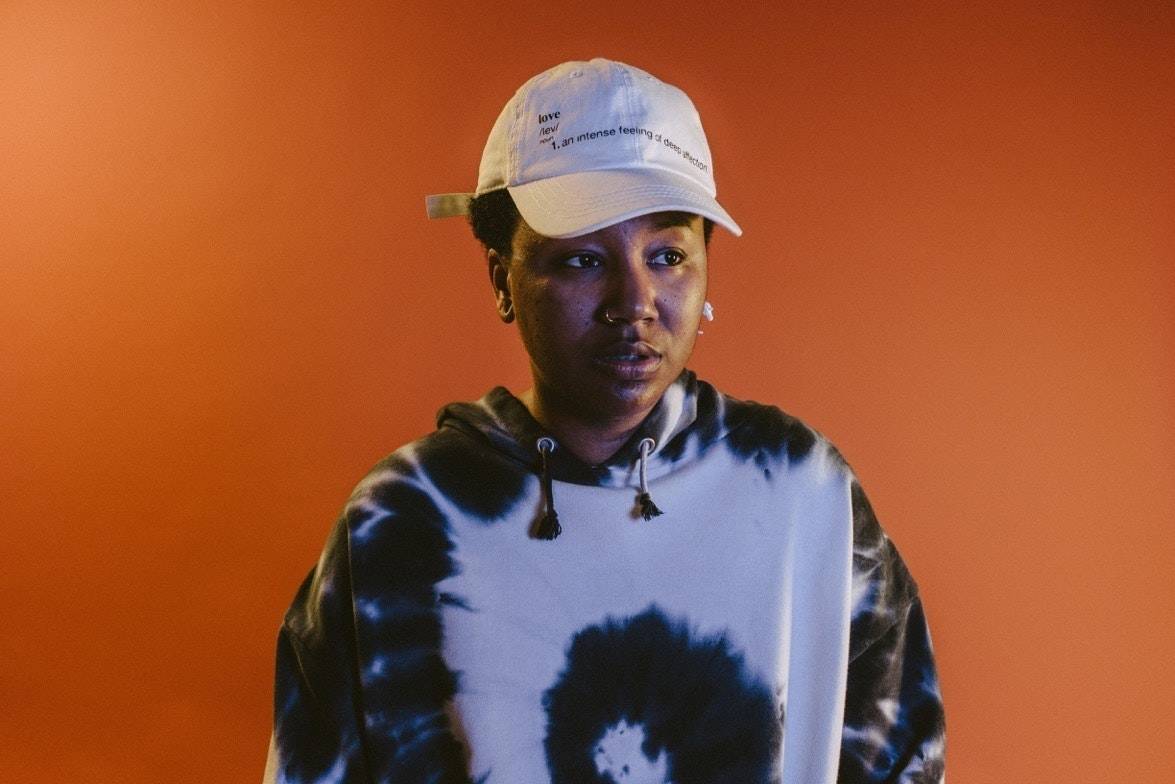It’s common to hear musicians speak of “staying in one’s lane”—rappers stick to rapping, singers to singing, and so on. Local artist Raven Matthews’ new record Disco Christ skirts across the median in a drunken rage, zig-zagging through oncoming traffic. This genre-bending record adheres to no conventional framework and makes no attempt to fit into any small-minded categorical boxes.
“There are elements of grunge, punk, hip-hop, and EDM,” Matthews tells me. “The main point was to let go of the idea of genre. I feel like genre separates us as artists and keeps a lot of incredible collaborations from happening because we don’t work with people from outside our genre.”
Raven Matthews, co-founder of Seattle’s 69/50 art collective and life partner of celebrated Seattle rapper DoNormaal, uses his new album Disco Christ not only to break genre barriers, but to explore the rawer elements of human emotion through intense self-reflection. Lyrically, his album deals with themes of God, love, depression, and the everyday struggles associated with long-term relationships—all of which make Disco Christ extremely personal and easily relatable.
Sitting in a booth at Olaf’s bar in Ballard, Matthews explains why he decided to be open about his relationships on the album. “A lot of people pretend like their relationships are perfect because they don’t want other people to poke into the vulnerability of their relationship,” he says. “But at the end of the day, you have to work on yourself and making yourself happy, because no other person can make you happy.”
The quest for that self-made happiness was a driving force behind Disco Christ, which doubled as musical therapy for Matthews. It acts as a canvas on which Matthews paints a picture of some of his personal dysfunctions.
On “Bikini Bottom,” an emotional track carried by a witty instrumental full of seaside and SpongeBob SquarePants samples, Matthews, along with DoNormaal, burrows into the downside of relationships and the inability to solve interpersonal issues. “You see me I got problems I don’t know how to solve them,” he sings right out of the gate, before suggesting drugs as a solution: “Give some money to my neighbor and he fills my prescription.” The idea of self-medication plays into the palpable internal chaos that runs throughout the record.
Matthews openly addresses his pain and admits that his own flaws may be at the root of these problems. “My insecurities and my own issues sometimes get in the way of my relationships,” he tells me. “I have an eternal yearning to be heard and to be loved.” He descends even deeper into these issues on “Don’t Stop Baby,” which opens with a verse touching on both his love and admiration for his partner and the stress surrounding their high-profile relationship, feeling forced to keep up appearances: “Every time we walk in a party people coming up to us trying to go on a double date,” he raps. “They don’t really know what the shit really takes/All the little fights got us staying up late/Two broken hearts and the tears on her face/Open another there’s beers to erase.” Later in the song, he talks of taking molly and having an out-of-body experience on Capitol Hill. Mention of drug use is littered throughout the album, as both a coping mechanism and a means toward transcendence—and often a blurry mix of the two.
Raven teamed with Brakebill of Lifetime Supply Club (formerly Bad Dad Collective) on “LIGHTWAVES,” an airy electronic hip-hop track with an AutoTuned Matthews crooning about drugs and apologies. “I cannot find no peace/I just smoke more weed/Anybody close to me knows I can be real mean.” “Drugs are a part of life,” Matthews says. “Everybody is on the spectrum of drug use. And even ‘sober’ people drink a lot of coffee or can be sex addicts. Society deems what is and what is not a drug.”
Sonically, Disco Christ plays like an audio buffet, serving a medley of sounds that, surprisingly, includes a medley of spare, acoustic-driven tracks. Matthews plays the guitar and sings on these dreamy tracks, highlighted by “Myself,” a contemplative ballad in which he wanders through stages of self-doubt and expectancy: “When I was young I repressed myself/I don’t know why but I left myself/And now I try to accept myself.”
Universal acceptance has become a priority for Matthews as well as for the 69/50 collective he helped found. At the group’s shows, the audience is, more often than not, a beautiful all-inclusive mash of cultures, including a considerably large LGBTQ following. “We try to make music that relates to people and encourages individualism,” Matthews says. “I think that resonates with a lot of people. As personal people, we are not limited by rules of gender and sexuality. The way that we express ourselves and the style of our art is kind of queer in a way because we don’t believe in straightness, or that you can only be attracted to the opposite gender. That’s all bullshit.”
Keeping with the collective’s gender-fluid principles, Matthews’ record is genre-fluid as well. Songs like “SighCo Path” come from left field with a noisy intro that turns into gnarly electric-guitar, with Matthews ranting about his insecurities and his need for validation. “Tell me I’m beautiful, tell me I’m beautiful, I need some confidence boost,” he warbles. On “How Come,” he swags out a simple boom-bap hip-hop beat into one of the horniest songs you’ll ever hear by dressing it with ravenous lyrics and vocals so lusty you almost miss the fact he’s actually singing about his attempts to make amends for pain he’s caused.
On the surface, Disco Christ is a jumble of mixed emotions and experimental sounds. When you dive deeper, you find a questing young man baring his soul and putting the essence of his humanity on display—something Matthews also is doing in person as our interview at Olaf’s ends. “There’s something beautiful about stopping the cycle of addiction and dealing with your problems,” he says candidly as we get ready to leave. “You have to deal with your problems, drugs or no drugs. You can’t ignore the work you need to do.”
music@seattleweekly.com








